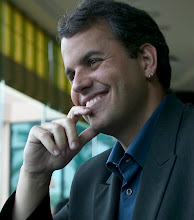The Easterlin paradox is a bedrock of social science and pop culture. Roughly, it argues that beyond a certain level of wealth, happiness no longer increases because you just end up wanting more stuff. It emerged from research in Japan in the 1970's and it tells a nice story, that we're more attuned to relative wealth and "money doesn't buy happiness." There are a host of reasons to want it to believe.
However, according to a story in the NY Times today, it might not be.
Feel free to read the story, but be sure to check out this graph: Sure looks like a tiny bit of a trend there.
Sure looks like a tiny bit of a trend there.
Wednesday, April 16, 2008
why i like data
Subscribe to:
Post Comments (Atom)

1 comment:
I'm curious if there were similar data collected in the 1970s & whether the Japanese findings were perhaps more accurate at that point? My (completely unsupported) hypothesis would be that as it becomes easier for people to find out how others around the world are living (as it has since the 1970s) the divergence between relative "happiness" levels would tend to increase. Now if this *is* the case, what I'd be really interested in knowing is whether this tendency is stronger for the rich seeing the plight of the poor and feeling better about their situation, or vice-versa..
Post a Comment